Mental health needs unmet in SC Latinx community. DACA recipients barred from profession.
The Herald-Journal is providing a translated version of this article as a free service to our Spanish speaking readers.
El Herald-Journal ofrece una versión traducida de este artículo como un servicio gratuito para nuestra audiencia de habla hispana.
Gia Quiñones cried when she saw a documentary about Latin American immigration to the U.S.
As a foreign-born Latinx woman, she saw her immigrant story in so many Latino families that lived, feared, and loved the country she now calls home.
"I know what it is like to be in class and not understand a single word," said Quiñones, who prefers the gender-neutral term, Latinx. "And I also realize that I haven't worked through those emotions because I still cry very intensely."
For many in the Latino community, the need for mental health services is largely unmet.
In a 2019 University of South Carolina Consortium for Latino Immigration Study, 38.9% of Hispanic communities in South Carolina rate their mental health as "Not Good." And yet only 3.4% of the US Hispanic population receive mental health services.
There are around 26,500 individuals the U.S. Census has counted in Spartanburg County who identify as Hispanic or Latino, according to the latest Census data. Out of that number, 6,591 Spanish-speaking individuals indicated they don't speak English "very well."
‘Half an American dream’: DACA was meant to be temporary. 10 years later, immigrants want relief.
When it comes to mental health services, Quiñones is one of only a few Spanish-speaking Latinx clinicians serving a much larger need. Currently, she is the only person providing Spanish counseling at Spartanburg Area Mental Health.
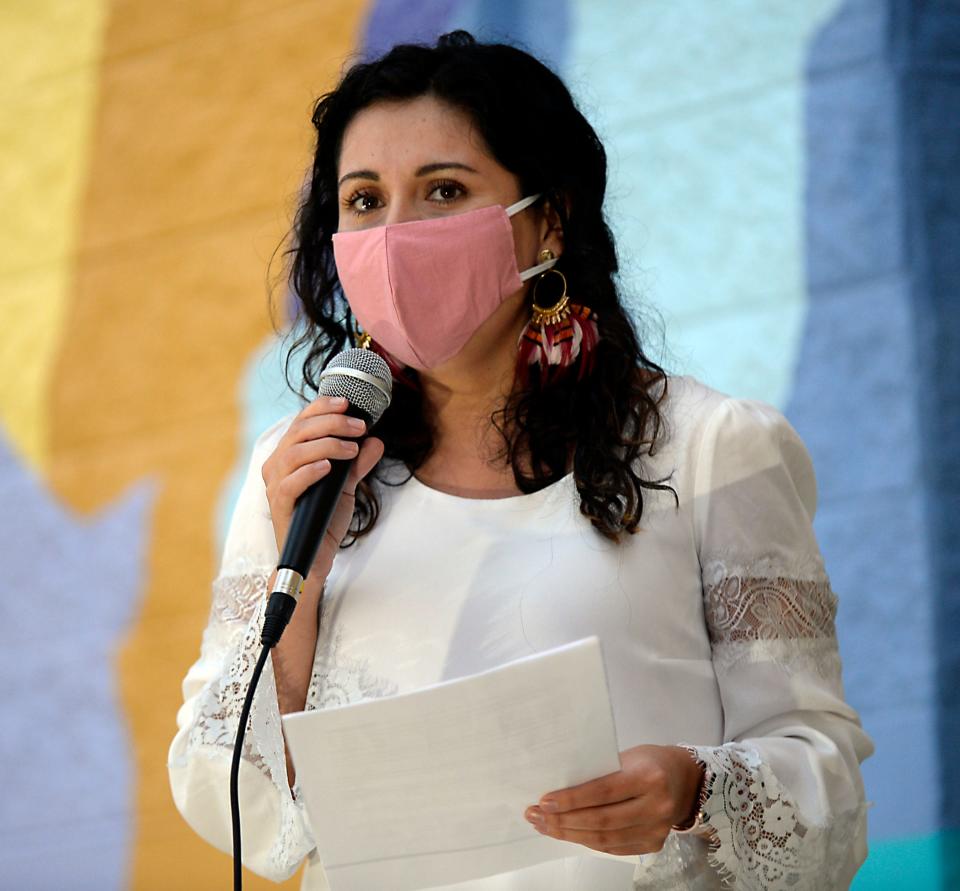
"If you only have a health care professional who isn't aware of the lived experiences that Latinx folks are coming from, they're not going to be able to get the help that they really need," said Jordan Crosby, a mental health counselor formerly based in School District 6, where 12% of the population is Hispanic.
Last year, state lawmakers failed to pass a bill to give South Carolina “Dreamers” access to more than 100 jobs currently barred to them. Deferred Action for Childhood Arrivals or DACA recipients — people who are brought to the U.S. without documentation when they're young children — are not allowed to receive professional licenses, excluding them from entering more than 40 occupations in South Carolina.
What is DACA?: Who are the Dreamers? Qualifications, path to citizenship explained.
Prospective mental health professionals, nurses and teachers are also excluded from receiving professional licensures and from these occupations.
The limitation with professional licensure for DACA recipients also poses an economic concern. In 2017, the Spartanburg Chamber of Commerce published a letter urging the South Carolina Congressional Delegation to address the issue of professional licensure, citing the need for prospective talent among business communities.
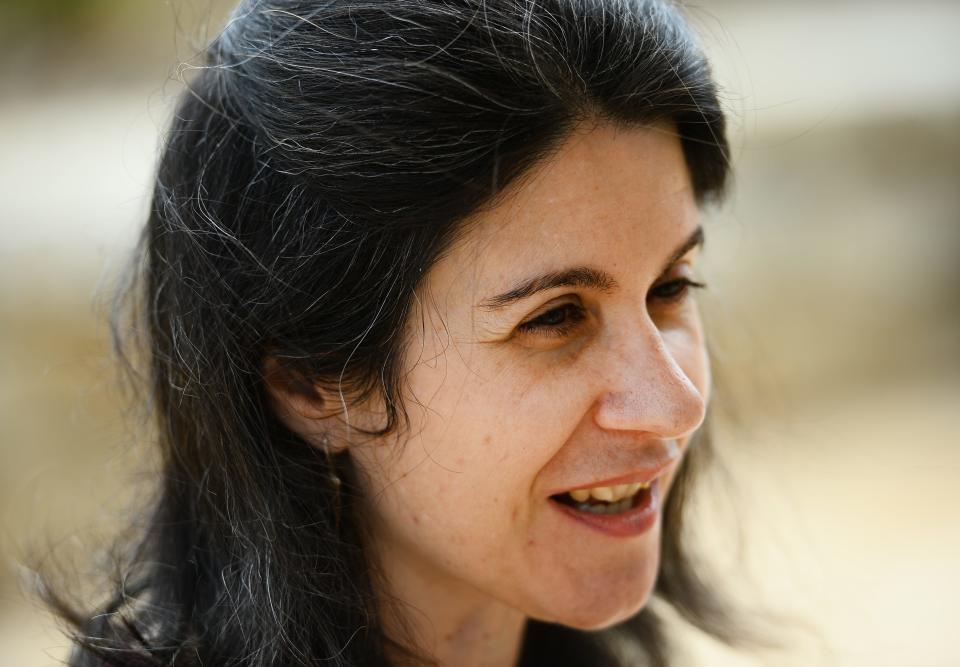
"They're not offering their talent as fully as possible because their talent is being rejected," said Laura Barbas-Rhoden, founder of the Hispanic alliance network, Alianza Spartanburg, and Spanish professor at Wofford College. "And in some cases, they're just completely picking up and leaving the state. And there are several people that are seeing that happen. And do they want to live in a place that sent their best friends packing?"
Witnessing many hardships among Latinx communities, Quiñones is disheartened by the amount of legal and social limitations placed upon immigrant families, even for those with a temporary visa.
"The stress of having a work visa or a student visa and having to figure out what you would do, where you would be, or how you would change your status. It's so stressful, the pathway to citizenship," Quiñones said. "And is there even a pathway? Our immigration system is so flawed that it is so difficult to change your status."
‘I don’t know if I will be deported’: Young immigrants prepare for DACA to end
Hispanic and Latino communities in Spartanburg
Spartanburg County has the fifth largest Hispanic population in South Carolina.
Of the 14,920 Hispanic or Latinx population in Spartanburg County, an overwhelming majority come from Latin America.
While some of the Hispanic population has been in the U.S. for generations, many individuals still have close ties with waves of outmigration from Latin America since the 1990s.
Barbas-Rhoden said Spartanburg has opportunities that make it a destination for Latino immigrants.
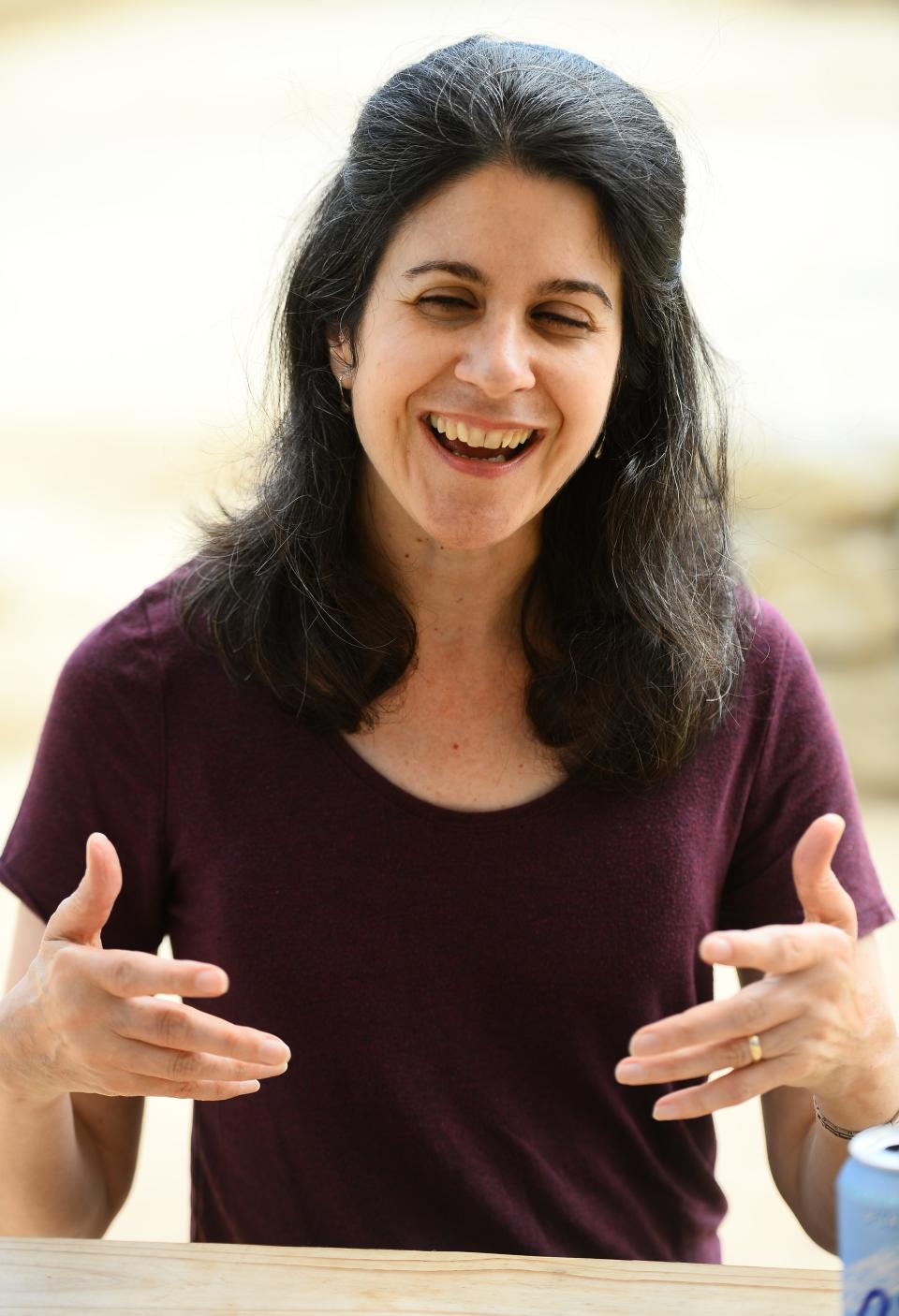
"Spartanburg is in a post-textile mill and the beginning of a manufacturing phase," said Barbas-Rhoden. "So there's road and home construction, lawn care services, all of those things that have historically been sectors which Latinx immigrants in recent economies work."
For most people in Spartanburg, the historical stability in their families can be normalized, average, and uninteresting, Barbas-Rhoden notes.
And yet for many Latinx families that have come more recently, the instability of their immigration status and the social isolation they experience from language and cultural barriers become chronic and are buried deeper with time.
“In our immigrant communities, mental health challenges, struggles, and illnesses go untreated, a lot of times until the symptoms are chronic or severe," Quiñones said. "For a person that has been struggling with depression and anxiety, it becomes chronic suicidal ideation, suicide attempts."
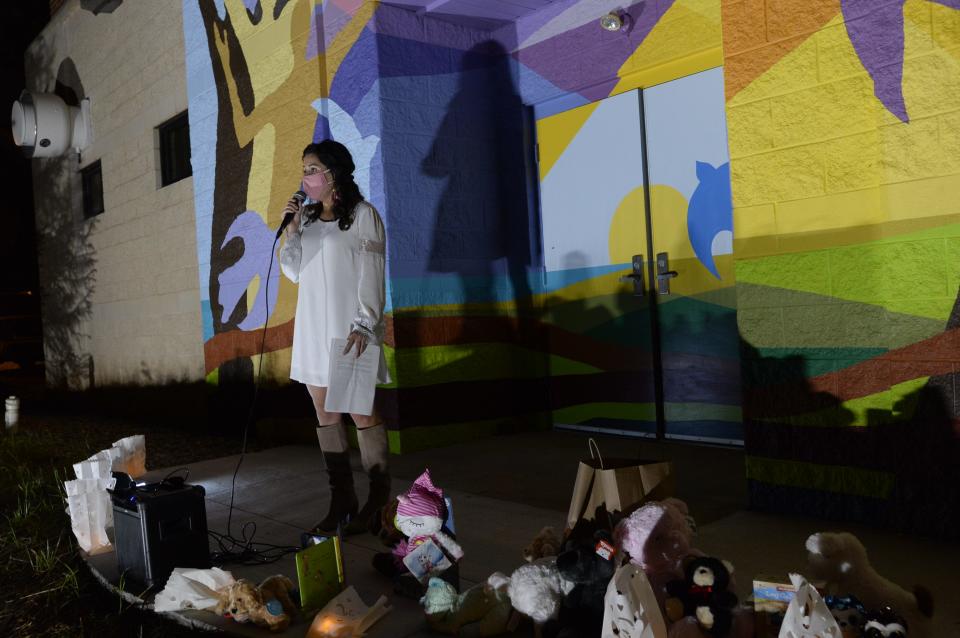
The Quiñones family's immigration story
Quiñones was born in Lima, Peru. When she was 11, her parents moved to rural Mississippi, away from the economic and political crisis Peru was experiencing in the 1980s and 1990s.
Quiñones remembers having no support, other than her parents and brother, when they arrived in rural Mississippi. Few people were Latinx or Hispanic and almost none spoke Spanish.
"I think many immigrant families struggle with isolation here in the U.S.," Quiñones said. "We want to be here because this is where we can provide for our family, but half of my (parents' hearts) were back in their home country. They wanted to be there."
Adapting to the new environment took its toll on all of the family members. For her parents, coming from Peru as a businessman and a teacher but only being able to find labor work that did not align with their skills was something they never got used to.
"I could see (my mom) having a difficult time, but she wouldn't verbalize it," Quiñones said. "She would verbalize different things and say 'let's go to the car' and 'this is gonna be good because you're gonna learn English.' But what we see in the way she would carry herself was that she was sad. And maybe she struggled with depression."
When Quiñones went to school, she didn't speak English. Her mother gave her a note with "My name is Gia" and "I have to go to the bathroom" written on it, but Quiñones said she lost it on her first day.
Not being able to communicate with others and not being able to express her needs was especially difficult, Quiñones told the Herald-Journal.
"Kids are kids, and they want to know about you because you're new," Quiñones said. "So they come into your face and you can see their mouths moving. And I'd say 'my name is Gia.' And you see the initial excitement. But then you quickly see how they regress because you don't understand them."
Quiñones said she wouldn't even talk sometimes because she knew her classmates wouldn't be able to communicate with her. There was no interpreter at her school, and no one talked to her.
Before Quiñones became a U.S. citizen, her Mississippi driver's license and her mother's work permit said in red letters "not resident."
"So it was like we were labeled," Quiñones said.
The mental health struggles among many Latino people
For the Latino communities in Spartanburg, there are struggles with immigration status, language and social isolation, along with anti-immigrant and racist sentiments.
Barbas-Rhoden has heard many stories over the years, being involved in School District 6, Alianza Spartanburg, and as a Spanish professor at Wofford.
One of Barbas-Rhoden's Latino students, while waiting to give a speech at a high school football game, heard people chanting "Build the Wall."
"And you think about how these narratives play out in any particular space," Barbas-Rhoden said. "What does (Build the Wall) mean? If you're in a moment of vulnerability, that might feel very traumatic. And what resources do people have to respond to those experiences that tell them they don't belong?"
Jordan Crosby, who works with School District 6 Hispanic and Latino students, said many second-generation Latino students experience cultural isolation, depression and anxiety about their guardians' status, as well as PTSD from chronic and acute trauma.
"If you've got (out of status) family members who have been detained or deported, there's a lot of trauma with that," Crosby said. "These kids may come home, and their parents are gone. They had no notice. That can happen at any point. The trauma of always worrying about what could happen and always being on edge can lead to a lot of distrust in the system."
Traumatic experiences with sexual assault and violence while crossing the border can lead to PTSD and flashbacks.
"It's a really, really dark thing to experience those violence and sexual assaults on your way here, but it is a reality," Crosby said. "For a lot of folks, to get their children to a better place, it takes a lot of sacrifices and a lot of work."

Barbas-Rhoden said she sees "dozens of children" going to school without their parents.
"You no longer have income, and you're about to become unhoused," Barbas-Rhoden said. "So you have a collective trauma, but it's often lived quietly. It's often a father being stopped at a traffic stop, ending up in detention and deportation."
The trauma and fear of deportation further exacerbate anxiety and depression among Latino individuals.
"The sense of protecting the status is taken very literally by children when they have conversations with people at school," Quiñones said. "They are told 'you could never talk about mommy or daddy not having a residency or a citizenship.' And some kids have taken it to the level of selective mutism where they just wouldn't speak at all."
For immigrants from Honduras and Guatemala, where mining operations in mountainous regions often deplete areas of water and return toxic chemicals to the landscape, having families back home can be a constant worry in their daily lives.
"If you're from that place, you might be worried about your family members who are telling you 'we don't have money to buy water, and there's not much water here anymore,'" Barbas-Rhoden said. "Imagine a person doing construction work. You're showing up at your workplace from dawn until dark, but in your head, you're thinking 'I have to watch the news and I have to get off in time to wire money home from Walmart.'"
When Hispanic and Latino communities try to seek help, options are limited
"One of the key challenges in Spartanburg, there are so few services for mental health offered in other languages and offered by practitioners who share some common identity. The capacity to meet the need is very limited," said Barbas-Rhoden.
Crosby, who works extensively with clients experiencing mental health crises, stresses Spartanburg's need for more mental health counselors who share Latinx culture and whose native language is Spanish.
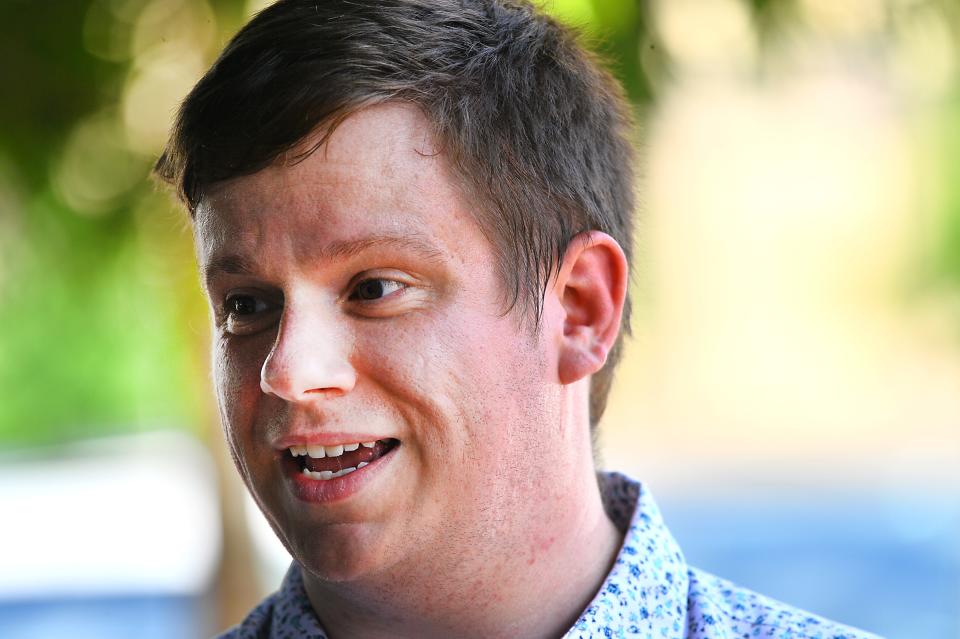
Although Crosby majored in Spanish in college, he does not offer counseling in Spanish, noting concerns about the delicacy of language in mental health counseling.
"We work in life and death situations. It's not uncommon that I get a call and someone is about to jump off a bridge or overdose on pills," Crosby said. "So in these situations, you have to be very delicate in the way that you speak.
"And when you're speaking in a language that is not your first language, you aren't always aware of the connotations of words. There's so much meaning that can be lost. And you really want to minimize the amount of uncertainty because there's already so much uncertainty in the clients' lives."
This article originally appeared on Herald-Journal: In Spartanburg, DACA recipients barred from mental health profession

